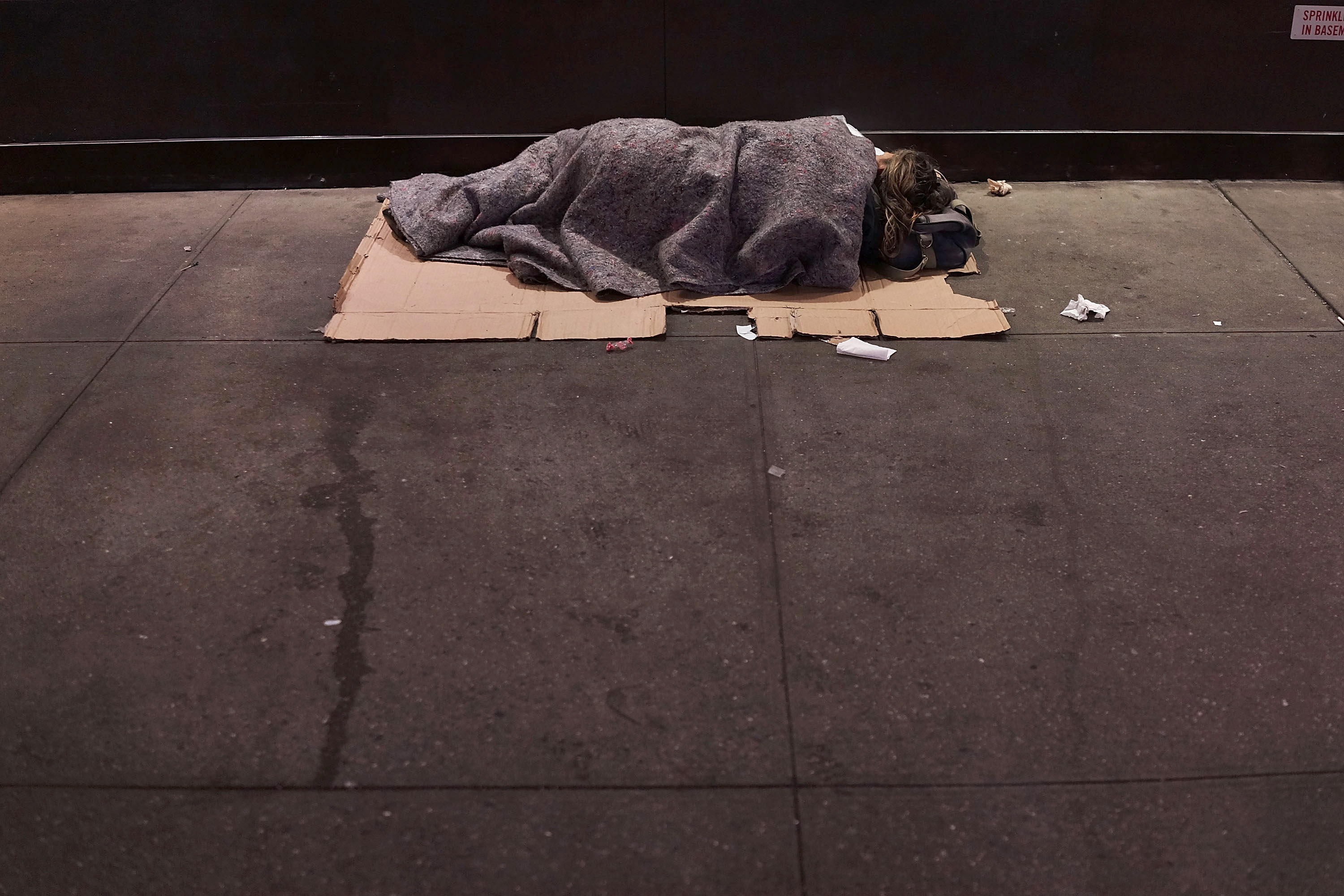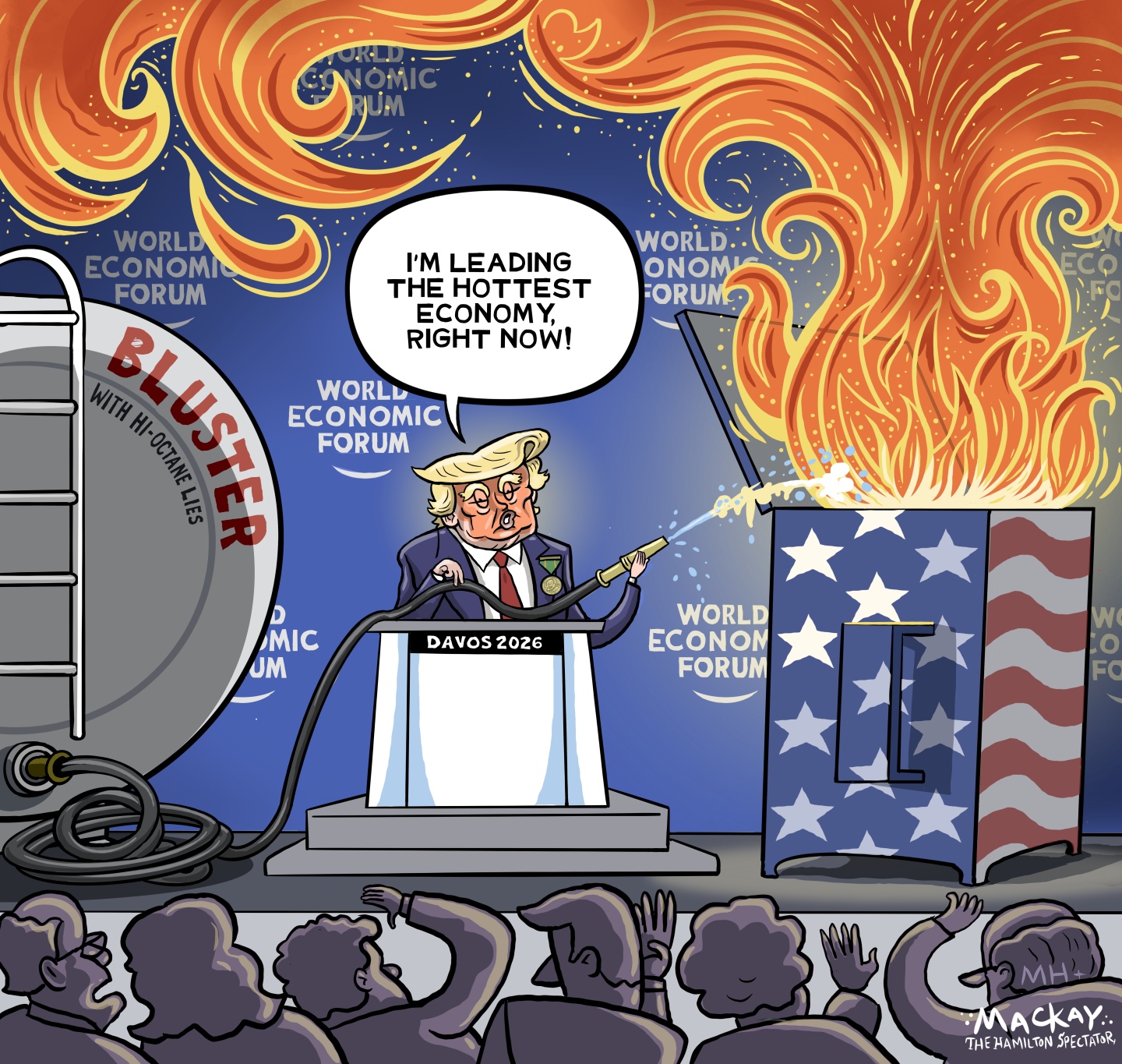Solving homelessness is easy. So why don't we just do it?
Effective policies are out there. But the politics are hell.


In New York City, Mayor Bill de Blasio is struggling with the issue of homelessness. There are tons of people sleeping on the street, and New Yorkers are upset about it. One police union briefly trolled the mayor by urging officers to post pictures of homeless people on the union's Flickr page.
In a rich nation like the United States, homelessness, like poverty generally, is a simple problem to solve policy-wise, but a tough nut to crack politically. Utah, of all places, has demonstrated that the simplest imaginable solution — namely, giving nearly free housing to the chronically homeless — works like a charm, and actually saves money. The only problem is overcoming the political barriers.
The first thing to understand about homelessness is that it's mostly a transitory phenomenon. Of any particular population of homeless people, the vast majority of them will find some place to live in a few months.
The Week
Escape your echo chamber. Get the facts behind the news, plus analysis from multiple perspectives.

Sign up for The Week's Free Newsletters
From our morning news briefing to a weekly Good News Newsletter, get the best of The Week delivered directly to your inbox.
From our morning news briefing to a weekly Good News Newsletter, get the best of The Week delivered directly to your inbox.
The people you see out on the street, panhandling and sleeping in doorways, are almost always part of the small hard core of chronic homeless people, about 10 percent of the homeless total. These are the people the New York Police Department is complaining about, and they're typically older people with serious addictions or mental illnesses.
Such people are very expensive for the state. Homeless shelters cost a lot, and people on the street are constantly being picked up by the police and getting sick from being out in the elements. Shelter beds, jail cells, court time, and repeated emergency room visits (if not time in intensive care) add up to truly spectacular bills. Utah found that it was spending $20,000 per year per chronically homeless person — fully 60 percent of the total spending on homeless overall, despite them being only a tenth of the total. In New York, the figure is more like $40,500.
Practically, this means that you could spend a lot of money on concentrated social services for the chronically homeless, and still come out ahead financially if it keeps them off the street. So when Utah tried just handing such people their own apartment in a program called Housing First (though participants do have to pay $50 or 30 percent of their income, whichever is more), and combined that with regular attention from social workers, hey presto — the state decreased chronic homelessness by 91 percent.
It's not a perfect solution. Some people wreck their apartments, while others simply prefer the street life. But on the whole, the program has been a smashing success — and not just at reducing government outlays, but at helping people stabilize their lives. It turns out that it's easier for people to get jobs and cut back on substance abuse when they aren't on the street.
A free daily email with the biggest news stories of the day – and the best features from TheWeek.com
Of course, this is not to neglect the much larger population of homeless people who are transitory. There is a similar program in some places called Rapid Rehousing that works with people who have recently lost their homes to get them into new ones and keep them out of shelters, which can be violent and dangerous. It's a simple solution, but a difficult fiscal proposition in a place like New York, which has a desperate housing shortage. The city could easily afford to house the chronic population given the likely savings, but the tens of thousands more who are temporarily homeless are a different story. The best solution here would be to implement a general public housing plan with hundreds of thousands of new units (which de Blasio has been trying to do, with some success), and reserve some of these for homeless use.
What this policy orientation runs headlong into, however, is the typical American attitude about moral desert. The idea of the most basketcase homeless people getting more services sets many people's teeth on edge. "I'm working hard and paying my bills," the argument goes. "How come I don't get a free apartment?" This sort of attitude produces wretched welfare-for-the-rich policies like the mortgage interest deduction, which pays out more the more money you make.
The answer to this hypothetical questioner, of course, is that he is fortunate enough not to need a free place to live. Incidentally, if he wants to quit his job, get himself a mental illness or three, and spend a few months sleeping on subway grates, all to get that sweet efficiency apartment, he's certainly free to do so.
When it comes to the hardcore homeless people that get the police and the tabloids all worked up, the solution is obvious and proven to work. All you have to do is try.
Ryan Cooper is a national correspondent at TheWeek.com. His work has appeared in the Washington Monthly, The New Republic, and the Washington Post.
-
 Political cartoons for January 25
Political cartoons for January 25Cartoons Sunday's political cartoons include a hot economy, A.I. wisdom, and more
-
 Le Pen back in the dock: the trial that’s shaking France
Le Pen back in the dock: the trial that’s shaking FranceIn the Spotlight Appealing her four-year conviction for embezzlement, the Rassemblement National leader faces an uncertain political future, whatever the result
-
 The doctors’ strikes
The doctors’ strikesThe Explainer Resident doctors working for NHS England are currently voting on whether to go out on strike again this year
-
 The billionaires’ wealth tax: a catastrophe for California?
The billionaires’ wealth tax: a catastrophe for California?Talking Point Peter Thiel and Larry Page preparing to change state residency
-
 Bari Weiss’ ‘60 Minutes’ scandal is about more than one report
Bari Weiss’ ‘60 Minutes’ scandal is about more than one reportIN THE SPOTLIGHT By blocking an approved segment on a controversial prison holding US deportees in El Salvador, the editor-in-chief of CBS News has become the main story
-
 Has Zohran Mamdani shown the Democrats how to win again?
Has Zohran Mamdani shown the Democrats how to win again?Today’s Big Question New York City mayoral election touted as victory for left-wing populists but moderate centrist wins elsewhere present more complex path for Democratic Party
-
 Millions turn out for anti-Trump ‘No Kings’ rallies
Millions turn out for anti-Trump ‘No Kings’ ralliesSpeed Read An estimated 7 million people participated, 2 million more than at the first ‘No Kings’ protest in June
-
 Ghislaine Maxwell: angling for a Trump pardon
Ghislaine Maxwell: angling for a Trump pardonTalking Point Convicted sex trafficker's testimony could shed new light on president's links to Jeffrey Epstein
-
 The last words and final moments of 40 presidents
The last words and final moments of 40 presidentsThe Explainer Some are eloquent quotes worthy of the holders of the highest office in the nation, and others... aren't
-
 The JFK files: the truth at last?
The JFK files: the truth at last?In The Spotlight More than 64,000 previously classified documents relating the 1963 assassination of John F. Kennedy have been released by the Trump administration
-
 'Seriously, not literally': how should the world take Donald Trump?
'Seriously, not literally': how should the world take Donald Trump?Today's big question White House rhetoric and reality look likely to become increasingly blurred
